
DeSantis staffer who shared video featuring neo-Nazi symbol no longer with campaign
A staffer for Florida Gov. Ron DeSantis is no longer with the 2024 presidential campaign just days after he retweeted a video featuring White supremacist imagery.
2023-07-26 23:18
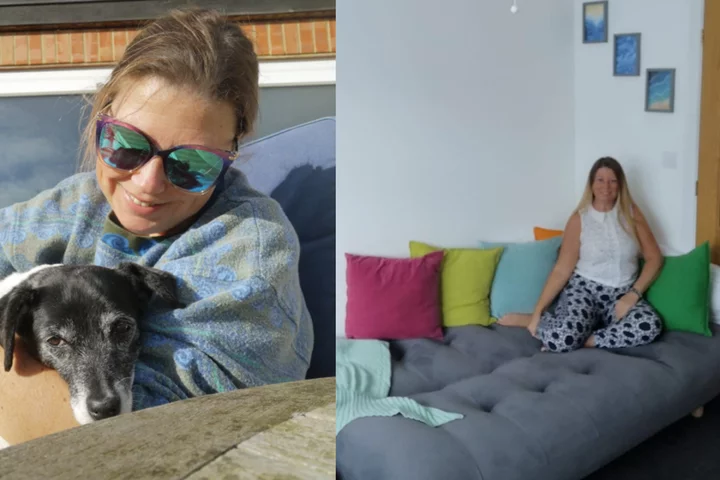
Meet the professional cuddler charging £70-an-hour to hug ‘the big spoons in life’
A professional cuddler who makes a living giving clients hugs has said people travel from all over the globe to receive the cuddle therapy she offers which is “far less intimate than a massage” and helps people from “all walks of life”. Natasha Wicks, 44, from Coventry, West Midlands, says that despite criticism, cuddling is scientifically proven to release happy hormones like dopamine and that a lot of her clients are “the big spoon in life” and go to her for emotional support that they do not have at home. As such, many of her clients are caregivers and most of them join Natasha for two-hour hugging sessions, costing £70 an hour. The sessions vary depending on what the client wants, some having “emotional hugs”, others talking more and some wanting to “sit at opposite ends of the sofa with our legs and feet entwined”. Natasha became a cuddle therapist in 2015 and, while she has had comments online from people criticising the practice, she said that her family and friends were unsurprised when she first started giving professional cuddles. She said: “They all said to me that I give the best cuddles so it’s not surprising that I’d start doing it as a job. “It’s very much what I do, I help people and want to make people feel better. It’s a natural thing when someone is going through a tough time to want to give them a hug. “Cuddle therapy might not be as widely accepted in society but it’s far less intimate than other things like massages which are seen as normal.” Prior to becoming a cuddler, Natasha originally trained as a CBT therapist and counsellor. She said: “There’d be situations where I would be talking to someone and they’d really need a hug, but obviously, you’d have professional boundaries in place and it wouldn’t have been appropriate. “It was just a really natural thing. One client had finished her final session and we had agreed that she wasn’t my patient anymore so we hugged goodbye. She said to me that she’d wanted to do that for a long time and I thought ‘me too’.” Looking into cuddle therapy, which she said was increasing in popularity in 2014, Natasha took a training course. By 2015, she was a qualified cuddler and started taking on new patients for cuddle sessions. Natasha provides a minimum session of one hour but said most people go for at least two hours, sometimes longer if they are receiving more than one type of therapy. She said: “I always give people a hug on the doorstep when they arrive and then they’ll come in and relax, and we’ll have an initial chat about what brings them here. After that, I’ll put on some ambient music and we’ll have a cuddle on my cuddle sofa. “It can be daunting coming into a stranger’s house and I can tell the difference in them from arriving to leaving. The first hug they might be angled away from me but when we’re hugging goodbye, I can get my head in between their neck and shoulders and you can almost feel that a weight has been lifted from them.” There is not one type of person that visits Natasha for cuddles, but she says that a lot of her clients are caregivers. She said: “There’s all sorts of people who come for a cuddle, from people who have moved away from home for the first time and just want a mum hug all the way to people in their 80s. “I’m inclusive of all genders and all ages. I get a lot of clients who are the carers of their family and they are so busy looking after other people, and probably giving the hugs and support to other people, that they don’t have that for themselves. “A lot of people that come to see me are generally people are the big spoon in the life – they take care of others and don’t want to show a vulnerable side to people because they don’t want people to worry that they can’t cope. “I get a lot of carers, a lot of NHS staff, a lot of mums, a lot of people that are in a world where they have to be the strong one in the situation and they just want to be able to come here and let their guard down.” Natasha’s priority is to make people feel at ease when they arrive as she said it can be “nerve wracking” turning up at someone’s house for a hug. Setting out clear boundaries prior to meeting, the therapist has said that the patients she has welcomed into her home have all been respectful. She added: “I always say to people that when your body relaxes, your tummy might crumble and mine might too, but that people don’t need to worry about it. Sometimes people fall asleep and they might snore or fart, it’s just natural things that happen. It’s happened twice where someone has got an erection and that’s fine, I have boundaries and we’ll just change position. “I want people to feel reassured that, as soon as they get in, they feel comfortable.” Despite the unconventional therapy, when Natasha first took on cuddle clients, she said her family were completely “unsurprised” and the step from CBT therapy to cuddle therapy was a “natural evolution”. While Natasha focuses her time on a holistic approach for treating people, she noted that there is also neuroscience behind cuddles. According to the 44-year-old, physical touch activates the brain’s orbitofrontal cortex and cuddling releases oxytocin, dopamine and serotonin. Now, Natasha also does EMDR therapy and is a mental health swim host, and has clients travel from all over the globe to receive her hugs. She said: “Working from Coventry is brilliant because I’m only nine minutes on the train from Birmingham Airport and people come to visit me from all over. I get a client from Belgium, someone from Ireland and people from all over the UK who come to see me. “I wanted to find a sofa bed that just looked like a big comfy sofa for cuddle sessions. I’d started off with a big L shaped sofa but after about five years, it was sagging a bit, there’d been a lot of healing done on that sofa and it was time for a new one. “Now I have a sofa bed in my living room that I use as my cuddle sofa. It’s in the living room and it’s used for everyday life, watching TV with my partner, having people round and also for my work.” Breaking down the taboo around cuddle therapy, Natasha hopes more people will embrace the alternative treatment. She added: “As it’s become more popular, more people are becoming qualified as cuddlers and I think that’s great. “I’ve had comments online before of people thinking it’s weird or not understanding but there are other things we accept in society that are much more intimate than cuddles, like massages. “It’s not weird, it’s actually a really lovely thing to be able to make another soul feel better for a while.” Read More Charity boss speaks out over ‘traumatic’ encounter with royal aide Ukraine war’s heaviest fight rages in east - follow live New warnings about ‘concerning’ rise in at-home cosmetic dentistry What is ‘beer tanning’ and why are experts warning against it? Christian Cowan: Designing is like dreaming
2023-07-26 22:58
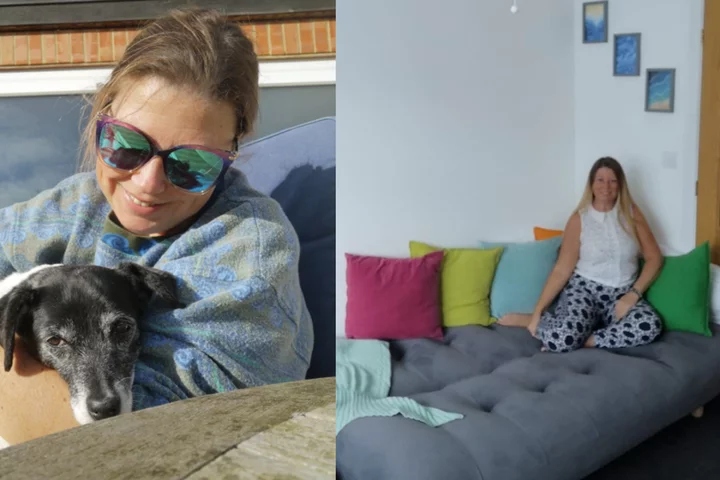
Meet the former therapist making a living as a professional cuddler
A professional cuddler who makes a living giving clients hugs has said people travel from all over the globe to receive the cuddle therapy she offers which is “far less intimate than a massage” and helps people from “all walks of life”. Natasha Wicks, 44, from Coventry, West Midlands, says that despite criticism, cuddling is scientifically proven to release happy hormones like dopamine and that a lot of her clients are “the big spoon in life” and go to her for emotional support that they do not have at home. As such, many of her clients are caregivers and most of them join Natasha for two-hour hugging sessions, costing £70 an hour. The sessions vary depending on what the client wants, some having “emotional hugs”, others talking more and some wanting to “sit at opposite ends of the sofa with our legs and feet entwined”. Natasha became a cuddle therapist in 2015 and, while she has had comments online from people criticising the practice, she said that her family and friends were unsurprised when she first started giving professional cuddles. She said: “They all said to me that I give the best cuddles so it’s not surprising that I’d start doing it as a job. “It’s very much what I do, I help people and want to make people feel better. It’s a natural thing when someone is going through a tough time to want to give them a hug. “Cuddle therapy might not be as widely accepted in society but it’s far less intimate than other things like massages which are seen as normal.” Prior to becoming a cuddler, Natasha originally trained as a CBT therapist and counsellor. She said: “There’d be situations where I would be talking to someone and they’d really need a hug, but obviously, you’d have professional boundaries in place and it wouldn’t have been appropriate. “It was just a really natural thing. One client had finished her final session and we had agreed that she wasn’t my patient anymore so we hugged goodbye. She said to me that she’d wanted to do that for a long time and I thought ‘me too’.” Looking into cuddle therapy, which she said was increasing in popularity in 2014, Natasha took a training course. By 2015, she was a qualified cuddler and started taking on new patients for cuddle sessions. Natasha provides a minimum session of one hour but said most people go for at least two hours, sometimes longer if they are receiving more than one type of therapy. She said: “I always give people a hug on the doorstep when they arrive and then they’ll come in and relax, and we’ll have an initial chat about what brings them here. After that, I’ll put on some ambient music and we’ll have a cuddle on my cuddle sofa. “It can be daunting coming into a stranger’s house and I can tell the difference in them from arriving to leaving. The first hug they might be angled away from me but when we’re hugging goodbye, I can get my head in between their neck and shoulders and you can almost feel that a weight has been lifted from them.” There is not one type of person that visits Natasha for cuddles, but she says that a lot of her clients are caregivers. She said: “There’s all sorts of people who come for a cuddle, from people who have moved away from home for the first time and just want a mum hug all the way to people in their 80s. “I’m inclusive of all genders and all ages. I get a lot of clients who are the carers of their family and they are so busy looking after other people, and probably giving the hugs and support to other people, that they don’t have that for themselves. “A lot of people that come to see me are generally people are the big spoon in the life – they take care of others and don’t want to show a vulnerable side to people because they don’t want people to worry that they can’t cope. “I get a lot of carers, a lot of NHS staff, a lot of mums, a lot of people that are in a world where they have to be the strong one in the situation and they just want to be able to come here and let their guard down.” Natasha’s priority is to make people feel at ease when they arrive as she said it can be “nerve wracking” turning up at someone’s house for a hug. Setting out clear boundaries prior to meeting, the therapist has said that the patients she has welcomed into her home have all been respectful. She added: “I always say to people that when your body relaxes, your tummy might crumble and mine might too, but that people don’t need to worry about it. Sometimes people fall asleep and they might snore or fart, it’s just natural things that happen. It’s happened twice where someone has got an erection and that’s fine, I have boundaries and we’ll just change position. “I want people to feel reassured that, as soon as they get in, they feel comfortable.” Despite the unconventional therapy, when Natasha first took on cuddle clients, she said her family were completely “unsurprised” and the step from CBT therapy to cuddle therapy was a “natural evolution”. While Natasha focuses her time on a holistic approach for treating people, she noted that there is also neuroscience behind cuddles. According to the 44-year-old, physical touch activates the brain’s orbitofrontal cortex and cuddling releases oxytocin, dopamine and serotonin. Now, Natasha also does EMDR therapy and is a mental health swim host, and has clients travel from all over the globe to receive her hugs. She said: “Working from Coventry is brilliant because I’m only nine minutes on the train from Birmingham Airport and people come to visit me from all over. I get a client from Belgium, someone from Ireland and people from all over the UK who come to see me. “I wanted to find a sofa bed that just looked like a big comfy sofa for cuddle sessions. I’d started off with a big L shaped sofa but after about five years, it was sagging a bit, there’d been a lot of healing done on that sofa and it was time for a new one. “Now I have a sofa bed in my living room that I use as my cuddle sofa. It’s in the living room and it’s used for everyday life, watching TV with my partner, having people round and also for my work.” Breaking down the taboo around cuddle therapy, Natasha hopes more people will embrace the alternative treatment. She added: “As it’s become more popular, more people are becoming qualified as cuddlers and I think that’s great. “I’ve had comments online before of people thinking it’s weird or not understanding but there are other things we accept in society that are much more intimate than cuddles, like massages. “It’s not weird, it’s actually a really lovely thing to be able to make another soul feel better for a while.” Read More Charity boss speaks out over ‘traumatic’ encounter with royal aide Ukraine war’s heaviest fight rages in east - follow live Meet the professional cuddler charging £70-an-hour to hug ‘the big spoons in life’ New warnings about ‘concerning’ rise in at-home cosmetic dentistry What is ‘beer tanning’ and why are experts warning against it?
2023-07-26 22:58
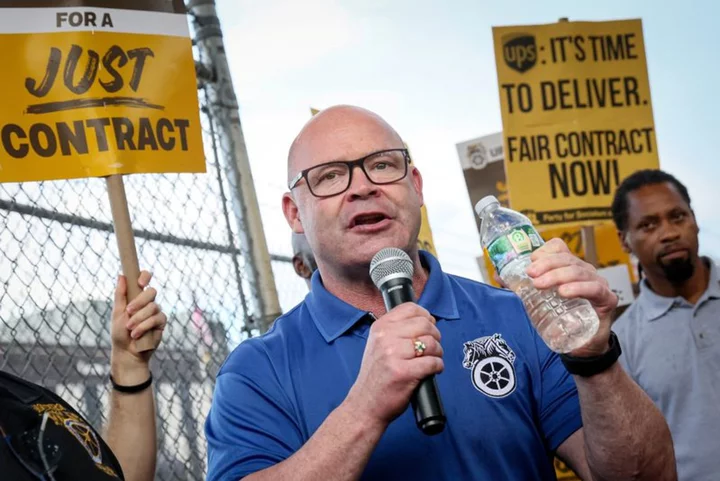
UPS deal burnishes US Teamsters leader's image as one 'tough SOB'
By Lisa Baertlein LOS ANGELES The head of the Teamsters union stared down UPS with a potential multibillion-dollar
2023-07-26 18:58
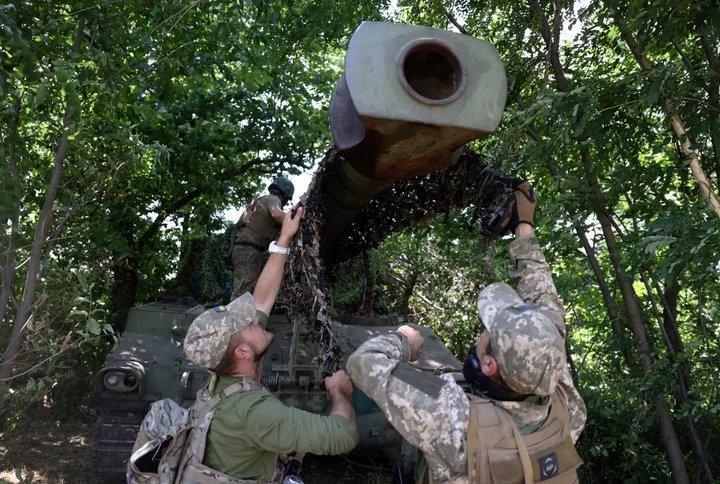
Ukraine Recap: NATO-Ukraine Council to Discuss Black Sea Ports
President Volodymyr Zelenskiy said a Wednesday meeting of the new NATO-Ukraine Council at the level of ambassadors will
2023-07-26 18:55
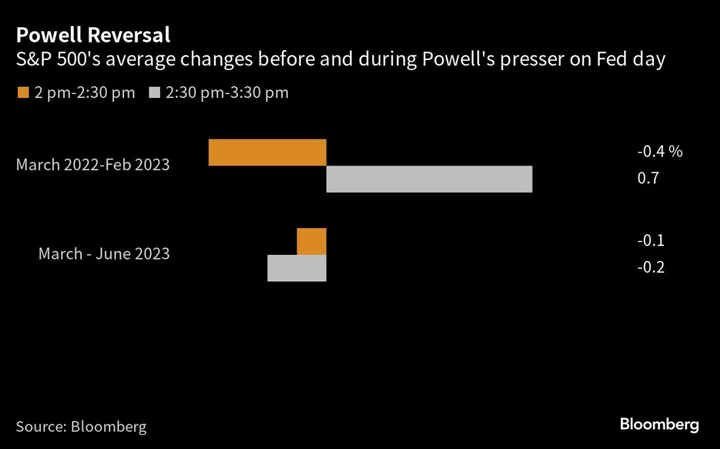
Powell Has Stopped Handing Gifts to Wall Street on Fed Day
In what was a brutal 2022 for investors, there was at least one sure-fire, money-making proposition for much
2023-07-26 17:29

Cambodia's Hun Sen resigns and hands power to son
The strongman ruler's move comes days after his ruling party consolidated power at an election.
2023-07-26 15:48

Premier League Chief Expects More Foreign Bids for English Clubs
Richard Masters, chief executive of the Premier League, sees no letup in the number of bids for teams
2023-07-26 15:26
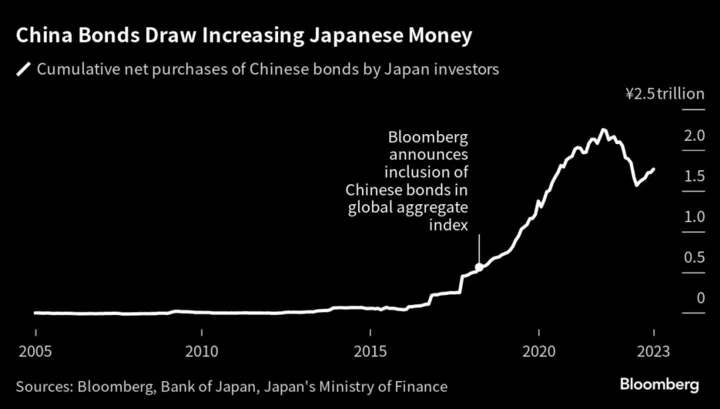
Friends Who Help Manage $640 Billion Clash on China Bonds
Three Japanese market veterans ruminating over beer in Tokyo whether Chinese debt is the deal of the century
2023-07-26 14:25
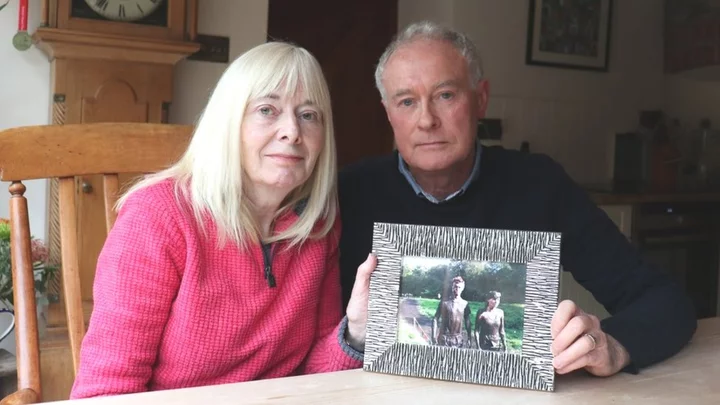
Parents of aid worker Chris Parry to visit Ukraine
Parents of Chris Parry, who died in Ukraine, say they are determined to honour their son's legacy.
2023-07-26 13:50

Israelis Protesting Reforms Say Netanyahu Has Declared ‘War on Women’
Most conspicuous among the hundreds of thousands of anti-government protesters waving blue and white Israeli flags outside parliament
2023-07-26 12:24

Mitt Romney calls on GOP donors to force out no-hope candidates in bid to stop Trump getting nomination
Senator Mitt Romney (R-UT) called on Republican donors to force candidates who have little to no chance to win the Republican nomination for president out of the race to prevent Donald Trump from winning. The 2012 Republican presidential nominee-turned-chief critic of the former president within the GOP wrote an op-ed in The Wall Street Journal that any candidate had a shot of beating Mr Trump if the contest became a two-person race. “For that to happen, Republican megadonors and influencers – large and small – are going to have to do something they didn’t do in 2016: get candidates they support to agree to withdraw if and when their paths to the nomination are effectively closed,” he said. Mr Romney set the deadline of 26 February, which would be after the Iowa caucuses, the New Hampshire primary, the Nevada caucus and the South Carolina primary. He said plenty of Republican candidates with no chance of winning benefit greatly from their candidacies. “Left to their own inclinations, expect several of the contenders to stay in the race for a long time,” Mr Romney noted. “They will split the non-Trump vote, giving him the prize. A plurality is all that is needed for winner-take-all primaries.” Mr Romney also cited the presidential candidacy of his father, the late George Romney, when he ran in 1968 and how many moderate Republicans got behind him before the elder Romney dropped out and they pledged their support to Nelson Rockefeller to stop Richard Nixon. But Mr Romney said such circumstances don’t exist today because of the rise of super PACs, which allow for unlimited fundraising. “A few billionaires have already committed tens of millions of dollars,” he said. “They have a responsibility to give their funds with clear eyes about their candidate’s prospects.” Mr Romney is the only Republican Senator who voted to convict Mr Trump for both of the former president’s impeachments in 2020 and 2021. The former Massachusetts governor said donors who back a candidate with a slim chance should receive a hard pledge that they will drop out and back the candidate with the best chance of beating Mr Trump by 26 February. “Donors may think that party leaders can narrow the field,” he wrote. “Not so. Candidates don’t listen to party officials, because voters don’t listen to them either. And the last people who would ever encourage a candidate to withdraw are the campaign staff and consultants who want to keep their jobs for as long as possible.” Polling in early states showed Mr Trump continues to hold a commanding lead in many of the early states, including Iowa, New Hampshire and South Carolina. “Our party and our country need a nominee with character, driven by something greater than revenge and ego, preferably from the next generation,” he said. “Family, friends and campaign donors are the only people who can get a lost-cause candidate to exit the race. After Feb. 26, they should start doing just that.” Read More Trump news – live: Trump shares QAnon post on Truth Social as ex-NYPD boss hands evidence to Jan 6 probe Watch: Jill Biden meets France’s first lady to celebrate US rejoining Unesco Hunter Biden's guilty plea is on the horizon, and so are a fresh set of challenges Judge vacates desertion conviction for former US soldier captured in Afghanistan Putting a floating barrier in the Rio Grande to stop migrants is new. The idea isn't.
2023-07-26 12:22
